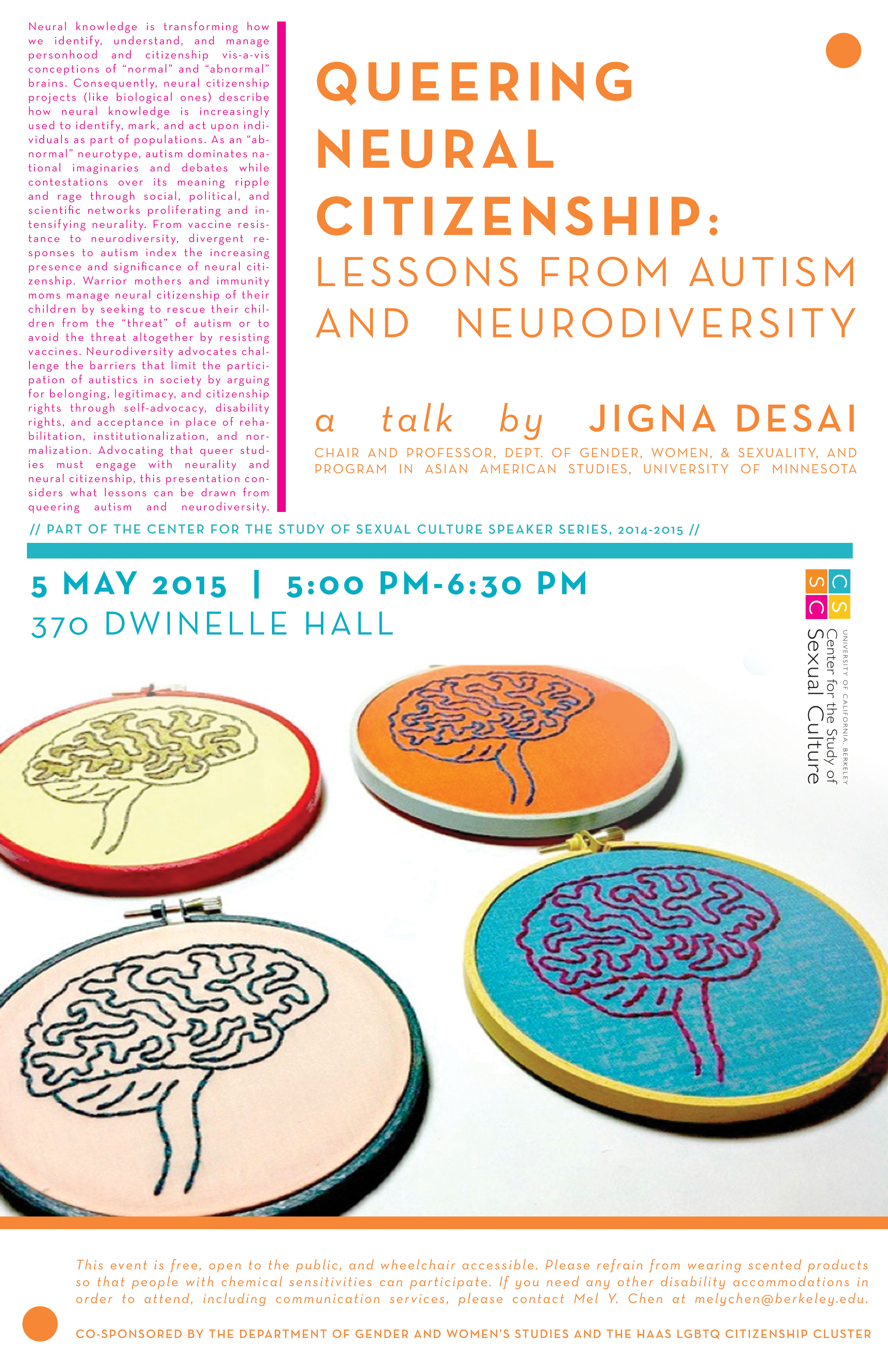Neural knowledge is transforming how we identify, understand, and manage personhood and citizenship vis-a-vis conceptions of “normal” and “abnormal” brains. Consequently, neural citizenship projects (like biological ones) describe how neural knowledge is increasingly used to identify, mark, and act upon individuals as part of populations. As an “abnormal” neurotype, autism dominates national imaginaries and debates while contestations over its meaning ripple and rage through social, political, and scientific networks proliferating and intensifying neurality. From vaccine resistance to neurodiversity, divergent responses to autism index the increasing presence and significance of neural citizenship. Warrior mothers and immunity moms manage neural citizenship of their children by seeking to rescue their children from the “threat” of autism or to avoid the threat altogether by resisting vaccines. Neurodiversity advocates challenge the barriers that limit the participation of autistics in society by arguing for belonging, legitimacy, and citizenship rights through self-advocacy, disability rights, and acceptance in place of rehabilitation, institutionalization, and normalization. Advocating that queer studies must engage with neurality and neural citizenship, this presentation considers what lessons can be drawn from queering autism and neurodiversity.
Jigna Desai is the chair of and Professor in the Department of Gender, Women, and Sexuality Studies and a founding member and former director of the Asian American Studies Program at the University of Minnesota. Her research interests include Asian American, postcolonial, queer, and feminist disability studies. Her book Beyond Bollywood: The Cultural Politics of South Asian Diasporic Film is the first book on the complex gender, sexual, and racial politics of South Asian diasporas (Routledge 2004). It is also critical to the formation of the global subfield of Bollywood Studies. She has co-edited several collections — Bollywood: A Reader (Open University /McGraw Hill Press, 2009), Transnational Feminism and Global Advocacy in South Asia (Routledge, 2012), and Asian Americans in Dixie: Race and Migration in the South (University of Illinois Press, 2013). She has published widely on issues of race, media, gender, and sexuality in journals such as Social Text, Journal of Asian American Studies, and Meridiens. She serves on editorial boards for several international journals and as a co-editor of the Asian American Experience book series for the Univ. of Illinois Press. She has taught over 15 different undergraduate and graduate at the Univ. of Minnesota as well held a visiting professorship at Harvard University. She has also been honored with the “Red Motley” Undergraduate Teaching Award, the Association for Asian American Studies Mentoring Award, Graduate Mentoring Award and a University of Minnesota Service Award. This work is part of a larger project on neural citizenship.
This event is free, open to the public, and wheelchair accessible. Please refrain from wearing scented products so that people with chemical sensitivities can participate. If you need any other disability accommodation in order to attend, including communication services, please contact Mel Y. Chen melychen@berkeley.edu
This event is co-sponsored by the Department of Gender & Women’s Studies and the Haas LGBTQ Citizenship Cluster.
Part of the CSSC’s 2014-15 Speaker Series.

